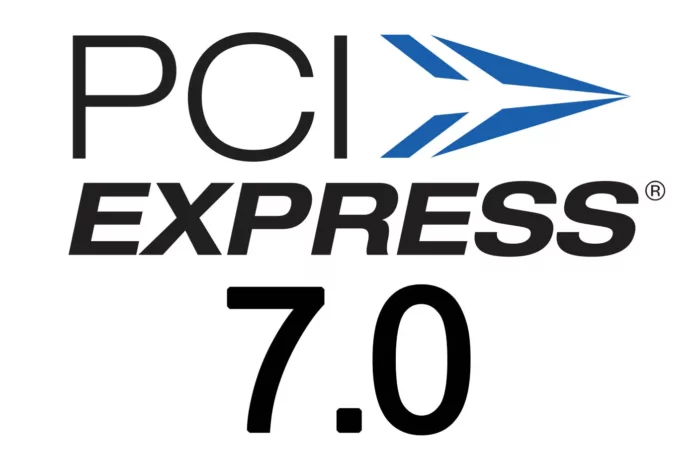The PCIe interface is integral to computers moving data between devices quickly and efficiently. Used primarily for graphics and storage, today’s cutting-edge hardware harnesses PCIe 5.0 for 32GT/s transfers over each lane. Announced in June 2019, forthcoming PCIe 6.0 doubles that speed. Now, PCIe-Sig, the body behind the specification, has laid the groundwork for PCIe 7.0, which will be released to members in 2025.
PCIe 7.0 doubles PCIe 6.0 performance once again, offering up to 4,096GT/s (512GB/s) of bi-directional bandwidth from a single x16 port. Putting that in context, today’s ubiquitous PCIe 3.0 offers approximately 1/16th as much bandwidth. Extrapolating out, PCIe 7.0 offers four times as much transfer speed as 5.0, which is currently the fastest PCIe interface available on consumer and datacentre computers.
Not only will PCIe 7.0 provide more bandwidth where it needed most – between GPUs, networking, storage and CPUs – it will conversely also match today’s speeds with fewer lanes. For example, it is usual to see multiple PCIe 4.0 x4 M.2 slots on premium consumer motherboards. PCIe 7.0 matches bandwidth with a single lane, meaning great opportunity for motherboard makers to design ever more feature-rich boards.
Other than speed hikes, it is expected PCIe 7.0 will focus on improving efficiency, as moving lots more data around inevitably brings elevated energy consumption into the equation. Like all previous versions, PCIe 7.0 is backwards compatible with older devices equipped with more limited interfaces.
The full force of PCIe 7.0 will be felt in the server world first, where inter-component bandwidth is key in extracting maximum performance. It’ll be a real boon for data-intensive devices used in HPC and machine-learning fields.
Nevertheless, PC enthusiasts can look forward to the same juicy connectivity in a few years’ time. Before that, though, we’ll likely see boards supporting PCIe 6.0 in the follow-on major refresh after next-generation consumer PC platforms – Zen 4 and Raptor Lake – from both AMD and Intel debuting later this year.
Though we are a ways off, think about a single M.2 x4 drive running at 60GB/s. Food for thought.

